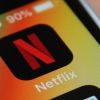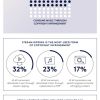-
 +4 +1
+4 +1Ironically, Too Many Video Streaming Choices May Drive Users Back To Piracy
To be very clear the rise in streaming video competitors is a very good thing. It's providing users with more choice, lower prices, and better customer service than consumers traditionally received from entrenched vanilla cable TV companies...
-
 +10 +1
+10 +1BitTorrent Live returns as a Snapchat-like social media app
BitTorrent is relaunching BitTorrent Live -- a Snapchat-like service it introduced in 2011 and shut down in 2017 -- as a social media platform.
-
 +9 +2
+9 +2Reddit Admins Issue Formal Warning to /r/piracy, Totally Out of the Blue
After never directing a single complaint to the popular /r/piracy discussion forum, Reddit Legal has now issued its moderators with an official warning concerning its future. Almost no evidence has been provided but apparently 74 complaints in recent months triggered the warning. Reddit has a quarter of a billion monthly users.
-
 +4 +1
+4 +1Rightsholders Can't Sue Without a Copyright Certificate, Supreme Court Rules
The US Supreme Court has ruled that creators can't sue someone for copyright infringement before they've obtained a copyright registration certificate. In a unanimous decision, Justice Ginsburg clarifies that applying for a copyright registration is not sufficient. Major copyright holders are not happy with the decision, but for some others it may offer hope.
-
 +18 +4
+18 +4As More Universities 'Ditch' Elsevier, Sci-Hub Blossoms
The University of California (UC) is the latest institution to cancel its subscription to leading academic publisher Elsevier. UC cites high costs and the lack of open access research among the reasons. This likely means an increase in traffic for Sci-Hub, the site that's often referred to referred to as 'The Pirate Bay for Science', which may actually play a bigger role than some suspect.
-
 +19 +6
+19 +6Netflix may be losing $192M per month from piracy, cord cutting study claims
As many as 1 in 5 people today are mooching off of someone else’s account when streaming video from Netflix, Hulu or Amazon Video, according to a new study from CordCutting.com. Of these, Netflix tends to be pirated for the longest period — 26 months, compared with 16 months for Amazon Prime Video or 11 months for Hulu. That could be because Netflix freeloaders often mooch off their family instead of a friend — 48 percent use their parents’ login, while another 14 percent use their sister or brother’s credentials, the firm found.
-
 +26 +3
+26 +3Studies Keep Showing That the Best Way to Stop Piracy Is to Offer Cheaper, Better Alternatives
Study after study continues to show that the best approach to tackling internet piracy is to provide these would-be customers with high quality, low cost alternatives. For decades the entertainment industry has waged a scorched-earth assault on internet pirates. Usually this involves either filing mass lawsuits against these users, or in some instances trying to kick them off of the internet entirely. These efforts historically have not proven successful.
-
 +13 +4
+13 +4University Buys 14.4 Petabyte Bandwidth to Boost 'Anonymous' Torrent Client
The Tribler lab at Delft University of Technology has sold part of its Bitcoin stash to purchase bandwidth for its anonymous torrent client. The bandwidth will be managed by swarms of intelligent bots which can buy new exit-point servers, if required. Users themselves can also join in by "mining" bandwidth tokens.
-
 +18 +3
+18 +3ISP Faces 'Net Neutrality' Investigation For Pirate Site Blocking Retaliation - TorrentFreak
After being ordered to block a number of piracy-related domains following a complaint from academic publisher Elsevier, Swedish ISP Bahnhof retaliated by semi-blocking Elsevier's own website and barring the court from visiting Bahnhof.se. Those actions have now prompted Sweden's telecoms watchdog to initiate an inquiry to determine whether the ISP breached net neutrality rules.
-
 +25 +2
+25 +2When filming your own child is breaking the law
Proud parents capturing their children's performances on smartphones are probably all breaking the law.
-
 +25 +4
+25 +4Researchers Report Elsevier to EU Anti-Competition Authority
Academic publisher Elsevier has repeatedly made the news for its battle with Sci-Hub, the "Pirate Bay" of science. However, while Elsevier is using copyrights to protect its business, academic-insiders accuse the publisher of "anti-competitive" actions.
-
 +16 +1
+16 +1Swedish ISP Protests 'Site Blocking' by Blocking Rightsholders Website Too
Bahnhof has suffered a major defeat against publisher Elsevier after a court ordered the Swedish ISP to block a series of domain names, including Sci-Hub. The decision goes against everything the company stands for but it can't ignore the blocking order. Instead, the ISP has gone on the offensive by blocking Elsevier's own website and barring the court from visiting Bahnhof.se.
-
 +19 +3
+19 +3Globally, Almost Four Out of Ten Music Consumers Are Pirates
With record companies licensing more than 45 million tracks to hundreds of digital services around the world, consumers have fewer reasons than ever to pirate music. Nevertheless, a new report by IFPI reveals that 38% of global music consumers still obtain content illegally. While torrent sites and cyberlockers used to be enemy number one, stream-ripping is now the biggest threat.
-
 +5 +1
+5 +1The Rise of Netflix Competitors Has Pushed Consumers Back Toward Piracy
A new study shows that after years of declines, BitTorrent usage and piracy is on the rise again. The culprit: an increase in exclusivity deals that force subscribers to hunt and peck among a myriad of streaming services to actually find the content they’re looking for. Sandvine’s new Global Internet Phenomena report offers some interesting insight into user video habits and the internet, such as the fact that more than 50 percent of internet traffic is now encrypted, video now accounts for 58 percent of all global traffic, and Netflix alone now comprises 15 percent of all internet downstream data consumed.
-
 +38 +6
+38 +6IP Address is Not Enough to Identify Pirate, US Court of Appeals Rules
The owner of an adult foster care home who operated an open WiFi network has booked a big win against a copyright troll. Thomas Gonzales was accused of downloading the Adam Sandler movie The Cobbler but won $17k last year after being wrongfully targeted. The case went to appeal and in a ruling handed down yesterday by the Ninth Circuit Court of Appeals, Gonzales emerged victorious again.
-
 +12 +4
+12 +4Running Windows 95 in an “app” is a dumb stunt that makes a good point
A silly new app has been doing the rounds this week: Windows 95 as a standalone application. Running on Windows, macOS, and Linux, the Windows 95 "app" combines Electron (a framework for building desktop applications using JavaScript and other Web technology) with an existing x86 emulator written in JavaScript. The emulator can run a bunch of operating systems: for the app, it's preloaded with Windows 95.
-
 +23 +4
+23 +4Sci-Hub Proves That Piracy Can be Dangerously Useful
Despite two lost legal battles in the US, domain name seizures, and millions of dollars in damage claims, Sci-Hub continues to offer unauthorized access to academic papers. The site's founder says that she would rather operate legally, but copyright gets in the way. Sci-Hub is not the problem she argues, it's a solution, something many academics appear to agree with.
-
 +19 +3
+19 +3Easier streaming dents illegal downloads
Music piracy is falling out of favour as streaming services become more widespread, new figures show. One in 10 people in the UK use illegal downloads, down from 18% in 2013, according to YouGov's Music Report. The trend looks set to continue - with 22% of those who get their music illegitimately saying they do not expect to be doing so in five years.
-
 +29 +3
+29 +3YouTube's Piracy Filter Blocks MIT Courses, Blender Videos, and More
Several popular YouTube accounts, including those belonging to 'MIT OpenCourseWare' and the 'Blender Foundation,' have had all their videos blocked. People who try to access the videos are informed that they are not available in their country, suggesting that YouTube's piracy filters have been triggered. It's unclear, however, who or what is to blame.
-
 +17 +2
+17 +2The Pirating Elephant in Uncle Sam's Room
US entertainment companies are lobbying and litigating in favor of pirate site blockades around the globe. In addition, they're also urging domain registries to ban pirate sites, a practice even the US authorities are helping with. These measures are needed to protect revenues, the argument goes. But if that's the case, why is there little action on their home turf, the largest pirate nation of all?
Submit a link
Start a discussion




















